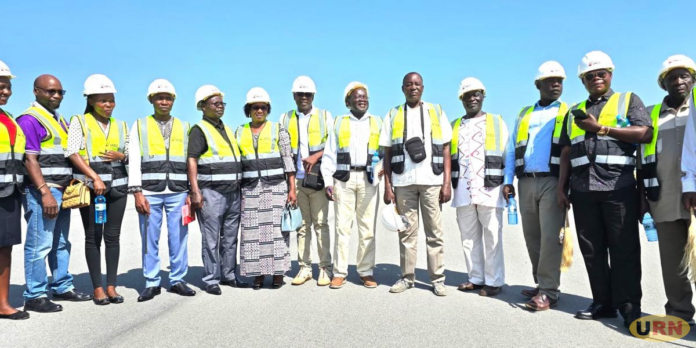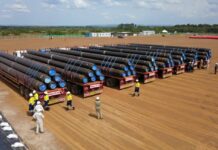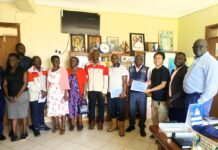By URN
Cultural leaders from the Alur Kingdom have concluded a successful familiarization tour of oil and gas project operations in the Lake Albert Basin, noting that the developments are progressing as planned.
According to the kingdom officials, the tour, organized by the Uganda National Oil Company (UNOC), was aimed at familiarizing Alur Kingdom one of the key cultural stakeholders in the region with the progress of the Tilenga and Kingfisher oil and gas projects. The tour took place from December 6th to 8th, covering both the Tilenga and Kingfisher petroleum development areas.
Rupiny David, the Communication Director for Alur Kingdom, explained that the tour was designed to update the cultural leaders on the status of the oil and gas projects, with the information cascading down to the Alur people, one of the largest ethnic groups in the entire Lake Albert Basin.
Rupiny added that the tour was led by the Deputy Prime Minister and Executive Director, Vincent Ochaya, and included five chiefs from Jonam in Pakwach District, two chiefs from Padyere in Nebbi District, along with the kingdom’s cabinet ministers and other officials.
Deputy Prime Minister Ochaya emphasized that the tour also highlighted the unity between the Alur and Jonam peoples as one community. The cultural leaders were able to assess various aspects of the projects, including the readiness of oil production pads, the storage of drilled crude oil, the payment of royalties once commercial revenues begin flowing, and the contribution of oil and gas to Uganda’s economic development.
They also reviewed the progress on the construction of Kabalega International Airport, among other developments. “From what we saw and experienced, the oil and gas sector in Uganda is promising and could be a game-changer for the country’s socio-economic transformation,” Ochaya said.
Ochaya also called on the government to prioritize the development of infrastructure, such as oil roads and other facilities, in the Alur Kingdom side of the Albertine region. He pointed out that many roads in Alur Kingdom remain in poor condition, making it difficult to conduct cross-border trade with the Democratic Republic of Congo, as the Alur population extends into DRC.




